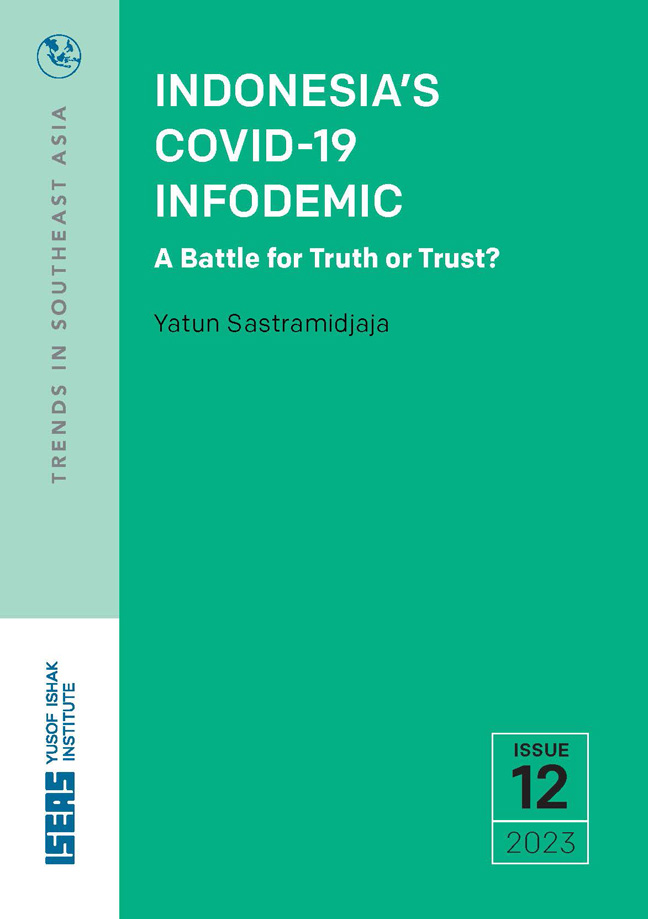
- Publisher:
- ISEAS–Yusof Ishak Institute
- Online publication date:
- March 2024
- Print publication year:
- 2023
- Online ISBN:
- 9789815104691
- Series:
- Trends in Southeast Asia

Besides being one of the countries most severely affected by the COVID-19 pandemic, Indonesia also experienced a severe 'infodemic': an overabundance of contradictory information - including misinformation and disinformation - on COVID-19. This infodemic hampered pandemic mitigation efforts, resulting in non-compliance with public health measures and delays to the national vaccination programme in the first six months of the pandemic due to widespread vaccine hesitancy or vaccine refusal. Furthermore, it fomented public distrust of the government and other institutions.
The government also contributed to the spiral of distrust through its inconsistent policies, lack of transparency, and mixed messages. Especially in the pandemic's early phases, government officials themselves were found spreading misleading information, first to downplay the severity and risk of COVID-19 in order to avoid social unrest, and subsequently to push for a quick reopening of the economy. In prioritizing the economy over public health, considerable resources were spent on influence campaigns to persuade the public to continue business as normal.
The influence campaigns appeared to succeed in persuading people to return to work and to get vaccinated eventually. However, public distrust remained and was easily reactivated on social media in response to inconsistencies and double standards in the government's enforcement of COVID-19 restrictions.
 Loading metrics...
Loading metrics...
* Views captured on Cambridge Core between #date#. This data will be updated every 24 hours.
Usage data cannot currently be displayed.